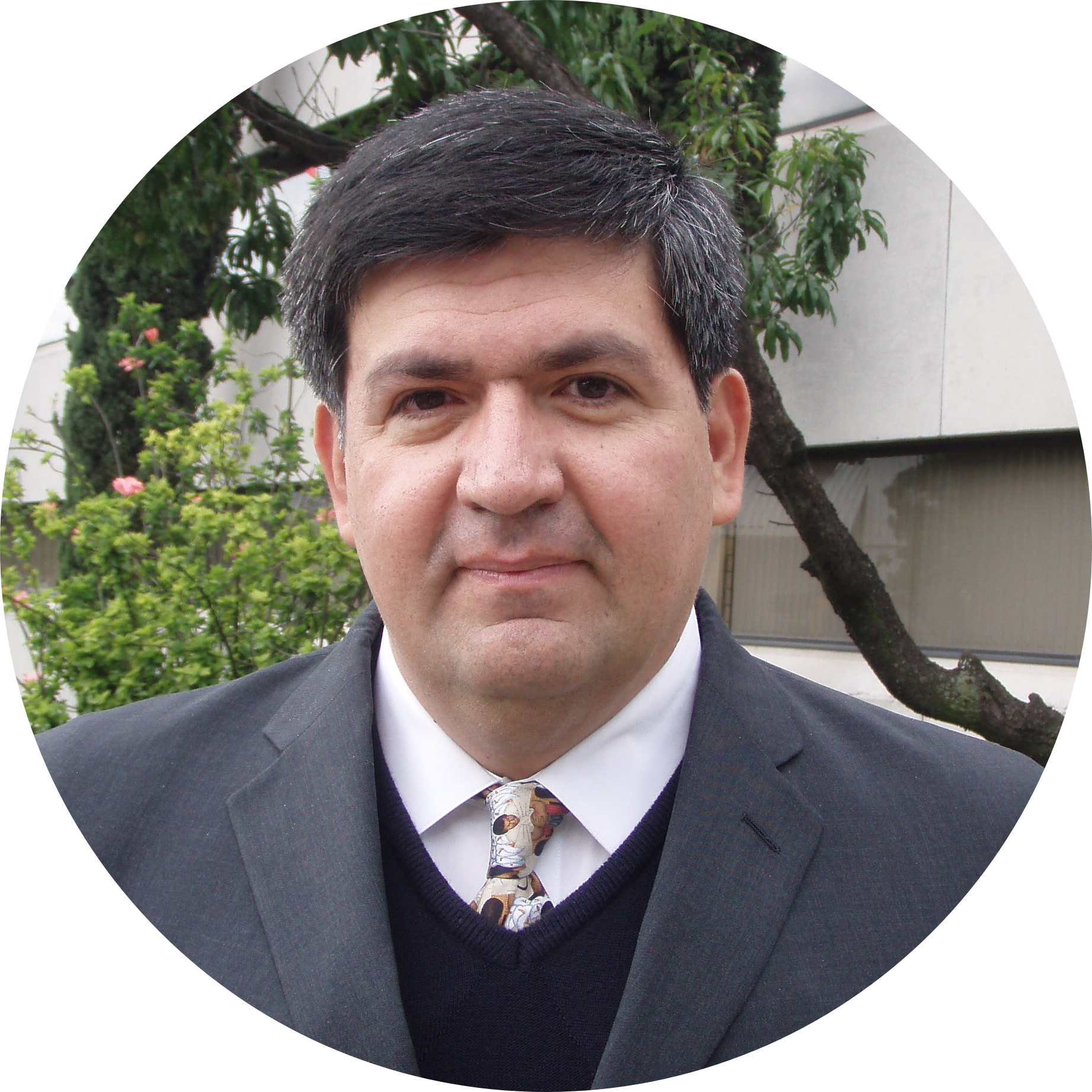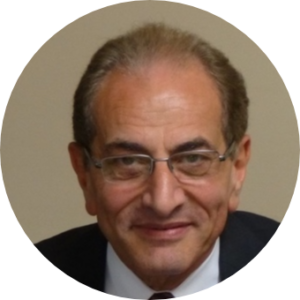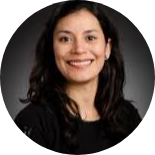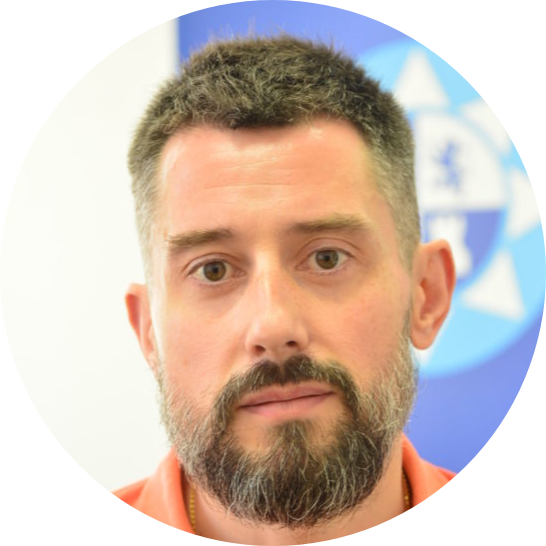An Overview of Evolutionary Multi-Objective Optimization

Dr. Carlos A. Coello Coello
CINVESTAV-IPN
Mexico City, México
Abstract Multi-objective optimization refers to solving problems having two or more (often conflicting) objectives at the same time. Such problems are ill-defined and their solution is not a single solution but instead, a set of them, which represent the best possible trade-offs among the objectives. Evolutionary algorithms are particularly suitable for solving multi-objective problems because they are population-based, and require little domain-specific information to conduct the search. Due to these advantages, the development of the so-called multi-objective evolutionary algorithms (MOEAs) has significantly increased in the last 15 years. In this talk, we will provide a general overview of the field, including the main algorithms in current use as well as some of the many applications of them.
Biography Carlos Artemio Coello Coello received a PhD in Computer Science from Tulane University (USA) in 1996. His research has mainly focused on the design of new multi-objective optimization algorithms based on bio-inspired metaheuristics, which is an area in which he has made pioneering contributions. He currently has over 500 publications which, according to Google Scholar, report over 50,000 citations (with an h-index of 87). He has received several awards, including the National Research Award (in 2007) from the Mexican Academy of Science (in the area of exact sciences), the 2009 Medal to the Scientific Merit from Mexico City’s congress, the Ciudad Capital: Heberto Castillo 2011 Award for scientists under the age of 45, in Basic Science, the 2012 Scopus Award (Mexico’s edition) for being the most highly cited scientist in engineering in the 5 years previous to the award and the 2012 National Medal of Science in Physics, Mathematics and Natural Sciences from Mexico’s presidency (this is the most important award that a scientist can receive in Mexico). He also received the Luis Elizondo Award from the Instituto Tecnológico de Monterrey in 2019. He is the recipient of the prestigious 2013 IEEE Kiyo Tomiyasu Award, «for pioneering contributions to single- and multiobjective optimization techniques using bioinspired metaheuristics» and of the 2016 The World Academy of Sciences (TWAS) Award in “Engineering Sciences”. Since January 2011, he is an IEEE Fellow. He is also Associate Editor of several international journals including the IEEE Transactions on Evolutionary Computation, Evolutionary Computation and the IEEE Transactions on Emerging Topics in Computational Intellience. He is currently Vicepresident for Member Activities of the IEEE Computational Intelligence Society (CIS), and Full Professor with distinction at the Computer Science Department of CINVESTAV-IPN in Mexico City, Mexico.
The Modern Automobile is the Most Complex Cyber Physical System (CPS)

Dr. Nady Boules,
President, NB Motors, L.L.C
Abstract: The automotive industry is undergoing a technological revolution with exponentially increasing electronic content and interconnected embedded systems in support of current and future complex electrified, connected and autonomous systems. This is in contrast with the relatively simple stand-alone computing systems that once controlled basic engine and chassis functions. In this talk, examples of new and emerging automotive systems will be discussed to show that these systems are evolving to become highly cyber-physical in nature, and perhaps represent some of the most sophisticated cyber-physical systems that exist. These technologies are considered foundational to future Intelligent Transportation Systems and have a huge potential to impact the industry and society. Before we get into such specific examples, the talk will quickly cover the motivations or market drivers which let the automotive systems to move into the CPS space.
Biography: Dr. Boules is the president of NB Motors, a private consultancy firm he founded after retiring from General Motors in September 2013. His career with the automotive industry spanned over 32 years with General Motors and Delphi, including 14 years as director of R&D and Innovation. In his most recent capacity as director of GM’s Research & Development’s Electrical & Control Systems Research Lab from 2007-2013, he was responsible for the development of advanced electrical systems and components for electrified, connected, and automated vehicles to enhance vehicle safety, comfort and efficiency. He has also led all GM’s R&D activities in areas of electronics and control software globally. Dr. Boules received his doctorate of engineering degree in 1978 from the Technical University of Braunschweig, Germany. He is a Life fellow of the Institute of Electrical and Electronics Engineers (IEEE) and the recipient of the 2011 IEEE Nikola Tesla Award for his work on permanent magnet motors. He is the author of numerous patents, technical and invited papers. He has also served as a member of the board of directors of the Intelligent Transportation Society of America (ITS-A), served as a member of several US National Academies Committees.
IoT goes to space: A revision of the challenges to enable IoT connectivity from nano-satellites constellations 
Dra. Sandra Céspedes,
Universidad de Chile,
Head of WiNET Research Group (Santiago, Chile)
Abstract: The Future Internet concept involves the evolution of Internet connectivity worldwide. Global coverage and always-on connectivity are now envisioned to almost everything on Earth, including critical infrastructure, natural resources, everyday objects, processes, and people. Large-scale Low-Earth Orbit (LEO) satellite constellations have shown its potential as an expansion of terrestrial networks to address the lack of coverage in remote regions and the vulnerability of terrestrial networks in cases of natural disasters. Constellations of nano and small satellites are being deployed to expand the range of possible services provided by space communications infrastructure, in aspects such as machine-to-machine communications, emergency communications, remote monitoring, and remote device controlling, among others. This talk focuses on the segment of LEO constellations that intend to remain as a low-cost solution for IoT connectivity of wide-area and power-constrained sensor (and actuator) networks. The focus is on the direct-to-satellite access mode, where the sensor nodes are equipped for communicating directly with the satellite. We will address challenging aspects related to the first three layers of a typical communications system: physical, link, and network layers, in the context of IoT networks served by LEO constellations.
Biography: SANDRA CÉSPEDES (IEEE S’09, M’12, SM’17) is an Assistant Professor with the Department of Electrical Engineering and the head of the Wireless Networking Research Group (WiNet), Universidad de Chile, Santiago, Chile. She received her B.Sc.(2003) and Specialization (2007) degrees in Telematics Engineering, and Management of Information Systems, from Universidad Icesi, Colombia, and a Ph.D. (2012) in Electrical and Computer Engineering from the University of Waterloo, Canada. Dr. Céspedes is an Associate Researcher with the Advanced Center of Electrical and Electronic Engineering (AC3E) and is also the Head of Research at NIC Chile Research Labs. Sandra is IEEE Senior Member and serves as an Associate Editor for the IEEE Internet of Things Journal and the IEEE Vehicular Technology Magazine. Her research focuses on the topics of vehicular communications systems and networking, cyber-physical systems, smart grid communications, and routing and protocols design for the Internet of Things
Nanocommunications for Medical Applications 
Dr. Rafael Asorey Cacheda,
Universidad Politécnica de Cartagena (España)
IEEE Computer Society
Biography: He received his M.Sc. degree in Telecommunication Engineering (major in Telematics and Best Master Thesis Award) and his Ph.D. (cum laude and Best PhD Thesis Award) in Telecommunication Engineering from the Universidade de Vigo, Spain, in 2006 and 2009, respectively. He was a researcher with the Information Technologies Group, University of Vigo, Spain until 2009. Between 2008 and 2009 he was also R\&D Manager at Optare Solutions, a Spanish telecommunications company. Between 2009 and 2012, he held an Ángeles Alvariño position, Xunta de Galicia, Spain. Between 2012 and 2018, he was an associate professor at the Centro Universitario de la Defensa en la Escuela Naval Militar, Universidade de Vigo. Currently, he is an associate professor at the Universidad Politécnica de Cartagena. He is author or co-author of more than 60 journal and conference papers, mainly in the fields of switching, wireless networking and content distribution. He has been a visiting scholar at New Mexico State University, USA (2007-2011) and at Universidad Politécnica de Cartagena, Spain (2011, 2015). His interests include content distribution, high-performance switching, peer-to-peer networking, wireless networks, and nano-networks. Regarding IEEE, he is an active member collaborating in different activities like the last edition of the 2020 IEEE High Performance Switching & Routing Conference, in which he served as Technical Program Committee Co-Chair.
